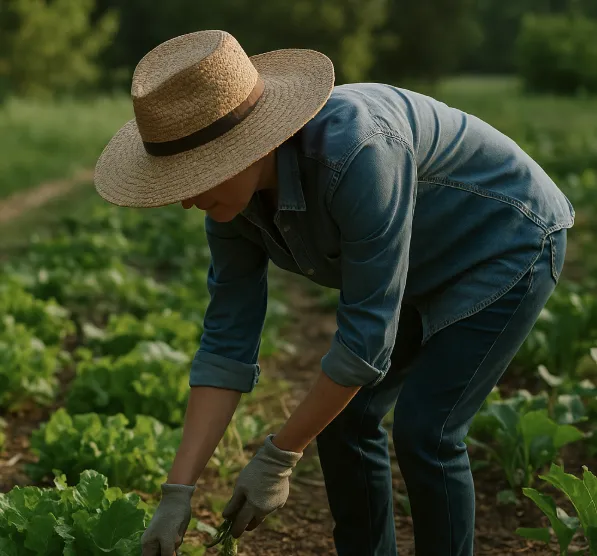
Dirt Cheap: How to Start Organic Gardening Without Breaking the Bank
You don’t need gold-plated compost or a degree in soil microbiology to grow good food. You need curiosity, consistency, and a little grit under your nails.
Organic gardening on a budget is less about spending and more about rethinking what you already have. Here’s how to dig in:
1. Compost Like a Cheapskate (Who Loves the Planet)
Skip the fancy bins and start with a simple pile or trash can with holes. Toss in veggie scraps, eggshells, leaves, coffee grounds, and a little elbow grease. Your future plants will thank you in flavor.
Pro Tip: Befriend a local café or juicer—they might pay you in carrot peels and coffee grounds just to haul it away.
2. Seed Swaps & Saver Savvy
Buying organic seeds every year? That adds up fast. Instead, join a local seed swap or save seeds from your best plants.
Start with easy ones: tomatoes, peppers, and lettuce. They'll reseed your garden and your budget.
3. Get Scrappy With Your Soil
If your soil is more brick than loam, don’t despair. Improve it with free local resources:
Leaf mold
Grass clippings
Aged manure (from a nearby farm—ask nicely!)
Kitchen compost
Watch Out: Bagged “organic garden soil” is often overpriced mulch in disguise. Read the fine print.
4. DIY Instead of Buy
Raised beds from salvaged wood
Trellises from old ladders, sticks, or wire fencing
Plant markers from popsicle sticks or broken pots
You don’t need cedar-lined Pinterest perfection—you need sunlight, drainage, and determination.
5. Water Wisely
Skip the irrigation system for:
Drip lines from reused soda bottles
Buckets with small holes
Mulch with straw, cardboard, or leaves
Less evaporation, more hydration.
6. Homemade Pest Control > Pricey Sprays
Yes, neem oil is great. But so is:
Garlic + chili water spray
Companion planting (e.g., marigolds with tomatoes)
Scrappy = strategic.
7. Build One Bed at a Time
Rome wasn’t built in a day. Neither is your garden. My recommendation? Start with:
Kale
Beans
Zucchini
They’re forgiving, prolific, and delicious. Dr Ricardo St. Aime; agronomist at Clemson University says to plant okra, too. “They’re [okra] easy to grow, don’t need tending. You can grow them in the city, in a pot, or outside” “They feed the soil, too… by bringing necessary nutrients and by breaking up hard soil”
Wanna Geek Out?
Seed Savers Exchange
How to Build a Compost Pile
© 2025 Clemson Tea Farm. All rights reserved.
